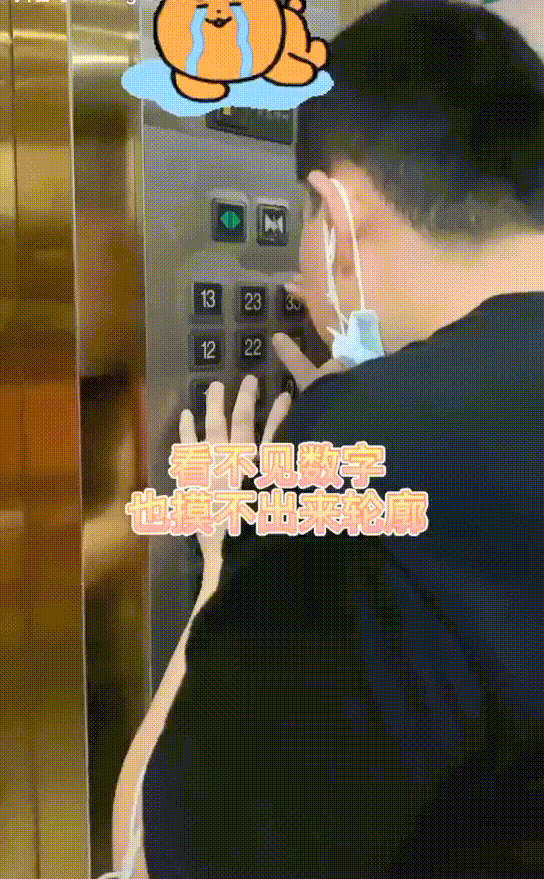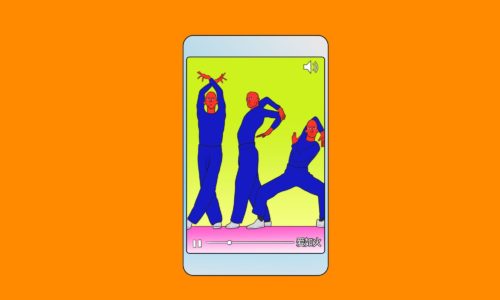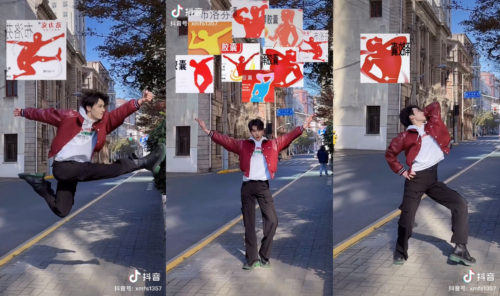Blind man films disability-unfriendly designs in Shenzhen — only to find himself attacked by abusive trolls
Almost overnight, a five-second video posted by the visually impaired man thrust him to the forefront of a national conversation, as well as the receiving end of a barrage of abusive insults.

Note: This article originally contained an image from The Economist by Hanna Barczyk. Our apologies for an unintentional misuse of copyrighted work.
Weibo user Mángtàn xiǎolóngdàn 盲探-小龙蛋 — let’s call him Mangtan, a visually impaired man from Shenzhen, Guangdong Province — faces many obstacles in his daily life. There’s a new one: online trolls.
Since May, the blind creator has been sharing content on the short-video platform Douyin. With an aim to “raise public awareness about people with disabilities,” Mangtan’s videos, most of which are about his daily struggles as a blind person, had never received widespread attention beyond the disability community.
But almost overnight, a five-second clip posted on August 1 thrust him to the forefront of a national conversation, as well as the receiving end of a barrage of abusive insults.
In the clip, Mangtan can be seen in an elevator that doesn’t have Braille numbers on floor buttons. Struggling to get to his destination, he says, “I can’t see the numbers. And there’s no Braille signs or voice announcers. This is so difficult. I hope elevators will be more user-friendly in the future.”

The video is no different from the creator’s other posts, but it strangely struck a chord among Douyin users. As of today, the elevator clip has racked up over 5.2 million views and almost 3,000 comments on the platform. Much of the feedback, to the blogger’s surprise, was shockingly offensive and vile.
“Why do you have so many complaints? Who do you think you are to ask for changes made just for you?” a comment reads. Another user wrote, “Survival of the fittest. It costs too much to please you.”
Many of the responses also revealed that the blogger was part of a poorly understood group of people, who, apparently unbeknownst to many sighted internet users, share digital space with them every single day. “Are you actually blind? How do you use this platform if you can’t see?” a Douyin user questioned.
The comments, however, did not stop Mangtan from trying to educate the public with more videos. On August 17, he shared a video of a tactile pavement that led to a dead end. In another video posted on September 1, he showed how inconvenient it was to get through an airport without sight. In direct response to people who tried to shut him down by calling him a liar, Mangtan also filmed himself demonstrating an official document that verified his visual impairment.

Mangtan’s persistent efforts also gained a legion of supportive followers, who called out (in Chinese) the abusive trolls in several viral posts this week. “Apparently, some people are sighted but mentally ill,” a Weibo user wrote (in Chinese).
Yesterday, the Accessibility Research Association, a Shenzhen-based nonprofit organization dedicated to increasing internet accessibility for the blind, where Mangtan works as a computer engineer, published a video with him. When asked about the controversy surrounding his videos, he says, “What should be eliminated are inaccessible facilities, disability-unfriendly environments, and discrimiantion against the disabled community.”
According to the China Disabled Persons’ Federation (CDPF), more than 85 million of people identified themselves as living with disabilities in 2018, and around 20 percent of them were visually impaired. But despite the considerable population, Chinese cities are still utterly unfriendly to people with disabilities. For them, barriers can range from newsstands in the middle of sidewalks, to blocked wheelchair ramps, to inaccessible bathrooms, to buildings without elevators. Meanwhile, visually impaired commuters have to face an additional host of issues, such as regular denial of access to public transportation and verbal insults from fellow passengers.






